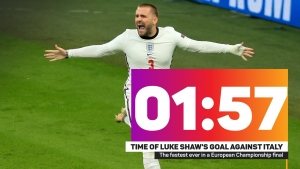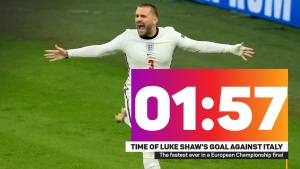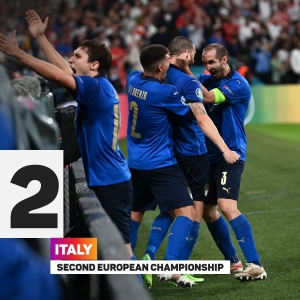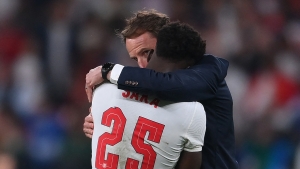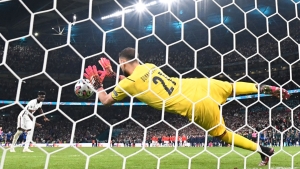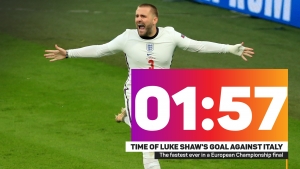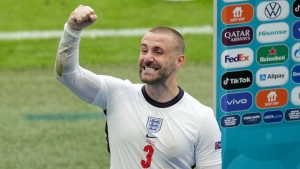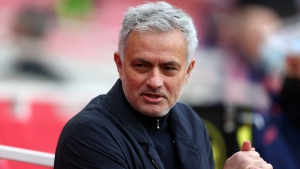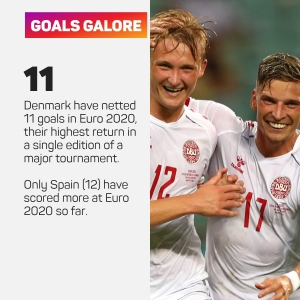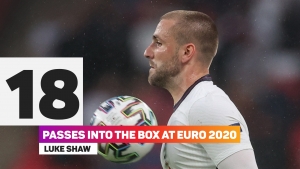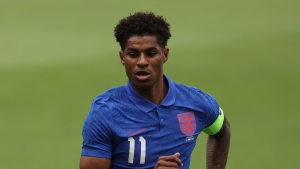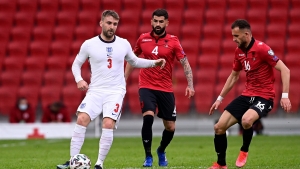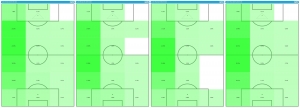Manchester United's opening-day 3-1 defeat to Crystal Palace was a chastening reminder of the team's frailties, but there was a somewhat surprising voice behind the subsequent call-to-action for the club's hierarchy.
Luke Shaw provided undoubtedly the most honest assessment of the situation among United players, this from a player who had rarely come across as a natural leader during his time at the club.
"We have a very good group, but personally I think we need more players to strengthen the squad," he told Norway's TV2. "It can give us a boost. When you look around at how other teams are strengthening their teams, then we must also do it to keep up with the others."
Perhaps the fact he wasn't speaking to a British outlet resulted in a more relaxed, open response from Shaw, who then also went on to criticise their pre-season.
But it was a new, authoritative look for a player who has always seemingly preferred to keep away from the media spotlight, and few United fans would have disagreed with him.
What happened next, however, he probably didn't expect – among the four players signed on deadline day in October was a new left-back, a Brazil international with the kind of attack-minded profile many had hoped Shaw would develop at United.
While Shaw definitely showed signs of progress in 2019-20, Alex Telles' arrival was the clearest sign that his position was no longer assured – he needed to respond.
A SHAW THING
The fact Telles has made just six Premier League starts in his debut season at Old Trafford is as good a starting point as any when highlighting Shaw's improved standing, and in fairness to the new signing, he's hardly put a foot wrong.
Telles has looked a solid acquisition and certainly fits the bill as a forward-thinking full-back who is also capable defensively, but Shaw has reached a level he has arguably never shown before in his career.
As an attacking outlet, Shaw's output has improved almost across the board, as such he has made himself almost undroppable.
His five assists is already a personal high for a Premier League season, having only managed seven in total before 2020-21, but that's just the tip of the iceberg. He is creating 2.3 chances per 90 minutes, which is up from one last term and well clear of his previous best of 1.2 each game for an entire campaign.
Undoubtedly one reason for that is the fact he is taking more set-pieces, yet his average of 1.4 open play chances created per 90 minutes remains a frequency he has never matched before over the course of a season, proving his increased familiarity with dead-ball duties isn't skewing the data.
A quick glance at his average position activity maps shows his involvement in the left-hand channel of the attacking third is up on each of the past two seasons, as well as his final year with Southampton.
This shows Shaw is embracing greater attacking responsibility, and where that is reflected most is the number of passes (including crosses) he is playing into the box each game (7.4). His last season with Saints had been his best in this regard (4.4), yet he's way up on that, and his productivity here is more than two-and-a-half times what it was in 2019-20 (2.9).
Shaw's early days with Southampton appeared to promise much. Finally, he appears to be back on track, not that it's been smooth sailing.
COPING, OUTLASTING, PROGRESSING
Shaw's relationship with Jose Mourinho became something of a distraction at times during the Portuguese's ill-fated reign.
Granted, Shaw wasn't the only player Mourinho seemed to have a problem with, but his treatment of Shaw in particular did leave a sour taste.
In two-and-a-half years playing for Mourinho, Shaw only made 33 Premier League appearances. While he did have injury and fitness problems, the manager's attitude seemingly did little to endear himself to the player.
Mourinho publicly criticised him after a 2016 defeat to Watford, saying: "For the second goal, [Nordin] Amrabat on the right side, our left-back is 25 metres distance from him, instead of five metres. But even at 25 metres, then you have to jump and go press. But no, we wait."
Mourinho then used Shaw's positive performance against Everton in 2017 against him. He said: "He had a good performance, but it was his body with my brain. He was in front of me and I was making every decision for him."
This isn't to say Shaw has been faultless this season. In fact, his defensive focus has been questionable at times in 2020-21, such as against Tottenham and Manchester City, for example.
But it's fair to say the greater attacking impetus he is showing this term compared to under Mourinho means he is more than making up for the occasional defensive lapse, and it's not like he's being beaten time after time – on average Shaw is dribbled past once every two games, the second lowest frequency for a single season in his entire career.
The difference? Well, according to the man himself, belief and competition.
"I feel really good, obviously big credit to Ole for that for believing in me and pushing me," Shaw said last month. "Alex [Telles] as well, we have a great relationship and he pushes me each day in training. We get on really well. It's nice to have that type of competition, but we push each other to get the best from ourselves. When he plays, I want the best for him, and it's the same the other way round. It's a positive way for both of us to look at it and push each other."
THE BEST?
There was a time – not even that long ago – when the very suggestion of Shaw being among the Premier League's best full-backs would have drawn a chuckle of derision in response.
Granted, across the four seasons prior to 2020-21, Shaw's best record of open play chances created per 90 minutes was 0.2, but there can be no doubt he is now at least in the conversation.
Liverpool's Andy Robertson is generally seen as the standard-bearer for left-backs in England's top flight, and Shaw compares well from an attacking sense with the Scotland international.
Shaw's 40 chances created this term is one more than Robertson, while the latter is just ahead in terms of key passes in open play (29 to 24) – though the United man has made 20 appearances to his rival's 24.
Robertson is proving a more regular source of service, with his 213 passes into the box and 201 total crosses/corners far more than Shaw's respective numbers (129 and 105), but the United left-back's deliveries are far more reliable.
Shaw's 37 successful crosses/corners is just five fewer than Robertson despite playing almost half the amount of overall deliveries.
But what really highlights Shaw's growth is his xA (expected assists) figures. His xA per 90, so the amount of assists he would ordinarily be expected to get per game, is 0.21 in 2020-21. Not only is that better than his previous best by some distance (0.12), Joao Cancelo (0.24) is the only full-back doing better here this term.
Shaw has made himself almost indispensable to United, his influence all the more important given Aaron Wan-Bissaka isn't particularly refined as an attacking outlet and they very rarely play with conventional wingers on either flank.
Therefore, Shaw offers the kind of threat from the wings that arguably no one else in the United squad does – and as his xA record shows, he is proving a consistent danger that marks him out as one of the league's best.
After being plagued by questions relating to his mentality for years, it's fair to say he is responding in the ideal fashion, with Telles' signing seemingly an important catalyst.
While it might be a little early to declare him outright the Premier League's best, his current trajectory at least shows that to be a realistic aim.























